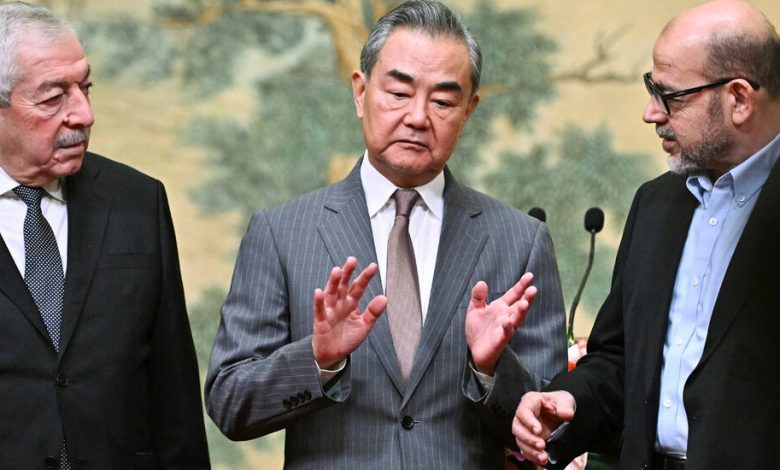Rival Palestinian Factions Project Unity, but Deep Divisions Remain

The two main rival Palestinian factions, Fatah and Hamas, signed a joint statement in Beijing on Tuesday that endorsed, in concept, a temporary government for the Gaza Strip and the Israeli-occupied West Bank, in a grand show of unity brokered by China’s foreign ministry.
The statement supports the formation of a unified government for the two territories that all parties can agree on — a high bar to clear for two factions that have long been vehemently, sometimes violently, opposed. But it offers little about how such a government would be formed, or when. Smaller Palestinian groups also signed the statement.
For China, the agreement represents an opportunity to promote an image of Beijing as a peace broker and an important player in the Middle East.
Mousa Abu Marzouk, a senior Hamas official, declared that “historic moments” were underway. Mahmoud al-Aloul, the deputy leader of Fatah, showered praise on China for standing beside the Palestinian people. Both men posed for photos with Wang Yi, China’s foreign minister, in an ornate hall in Beijing.
Yet, for many Palestinians, without concrete steps to make the unity plan a reality, the gathering in the Chinese capital was little more than a performance — and one they had seen before.
“What happened in China isn’t significant,” said Jehad Harb, an analyst of Palestinian affairs. “There aren’t any indications that Hamas and Fatah intend to end the split between them.”